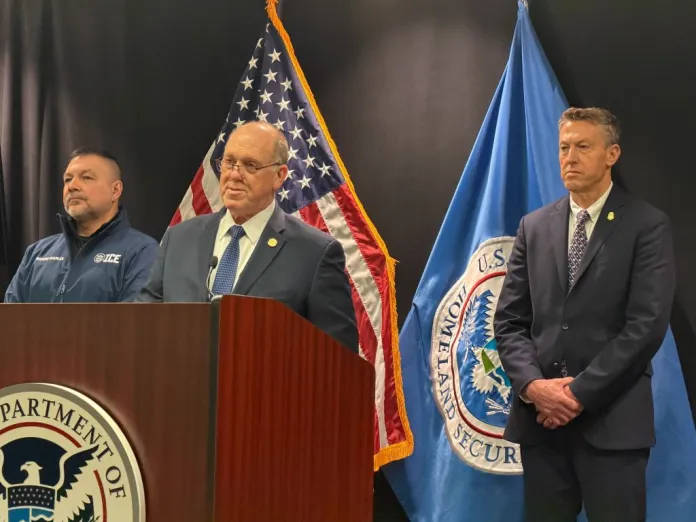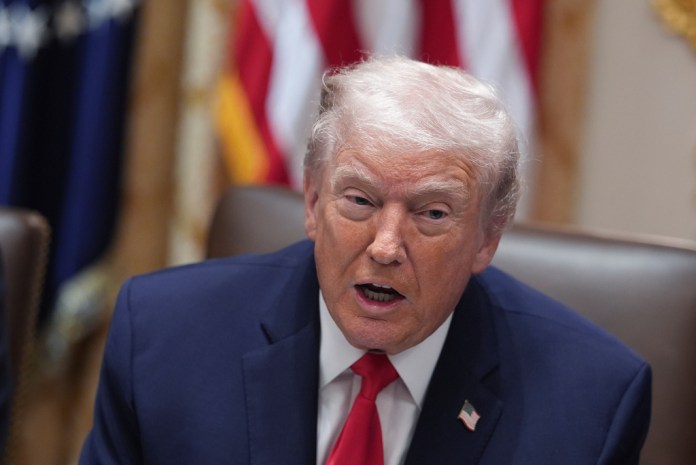On Obamacare, Are Democrats Trying To Make A Law Or A Point?
The article discusses the political strategy behind House Democrats’ recent effort to extend enhanced Obamacare subsidies through a discharge petition, a rare tactic used to force a floor vote. This move,expected to extend subsidies for three years,is seen less as a serious legislative effort and more as a political statement designed to pressure vulnerable House Republicans ahead of the 2028 election. The petition is widely regarded as unlikely to succeed since no Republican members are expected to support it. Similarly, Senate Democrats, while promising a vote on subsidy extensions, seem more focused on political signaling than achieving concrete legislative outcomes. The article highlights the distinction between making political points versus making laws,suggesting that Democrats are currently prioritizing political messaging in the subsidy debate. The author,Chris Jacobs,emphasizes this dynamic within the broader context of recent government shutdown negotiations and ongoing partisan conflicts over health care policy.
Several years ago, while working as a Capitol Hill staffer, I came across a useful question to ask when drafting — or, for that matter, analyzing — legislation: Do you want to make a point, or do you want to make a law?
That query helps to delineate political messaging exercises — the kabuki theater element of Washington — from pieces of legislation likely, or at least intended, to reach the president’s desk for signature. It also helps to understand House Democrats’ latest gambit in the fight over extending enhanced Obamacare subsidies, as their six-week-long government shutdown finally comes to an end.
Political Nonstarter
Press reports indicate that the House Democrat leadership will offer a discharge petition, one of the few ways for the minority party to guarantee a floor vote, associated with a bill to extend the enhanced subsidies. While text was not available as of this writing, those reports suggest that the leadership’s preferred bill will extend the subsidies, currently scheduled to expire on Dec. 31, for three years, through 2026, 2027, and 2028. An extension creating an Obamacare subsidy “cliff” in the fall of a year divisible by four — imagine that!
Sarcasm aside, the bill at least shows that Democrats learned their political lesson. As I recently noted, Democrats could have allowed the enhanced subsidies to lapse last year, to make the expiration a political issue in last fall’s campaign. Instead, they assumed they would have control of at least one elected branch of government in 2025, which they could leverage to demand a subsidy extension. (Oops.)
More to the point, no House Republican in his right mind will sign on to this petition. Over and above the fact that doing so will give control of the House floor to the minority, members of Congress would have to have a death wish before deliberately scheduling a fight on health care for the run-up to the 2028 presidential election. Indeed, moderate Rep. Don Bacon, R-Neb., immediately opposed the Democrat discharge petition. Even though, as a retiring member, he would face no political consequences for signing the measure, he called it “DOA,” or dead on arrival.
But that’s the point. By offering this type of discharge petition, the House Democrat leaders indicate that they want to make a political point. The intent seems obvious: to cause the maximum amount of pain for vulnerable House Republicans by publicly demanding that they agree to support a bill that Democrats themselves know Republicans cannot vote for. But the content of the discharge petition also implies that, for the moment at least, House Democrat leadership appears more focused on making a point than making a law.
Senate Kabuki Theater?
While Senate Majority Leader John Thune, R-S.D., has promised Democrats a vote on a subsidy extension in the coming weeks, it remains unclear what legislation senators will vote on. Will Senate Democrats try to make a point or make a law?
Regarding the recently concluded shutdown, Senate Democrats’ initial offer focused on making a point. The alternative bill they offered back in September not only contained a permanent extension of the Obamacare subsidies but the full repeal of the health care title of this summer’s budget reconciliation measure — roughly $1.5 trillion in spending. The fact that the bill also repealed immigration verification provisions from the budget reconciliation measure led to sombrero memes, coupled with a more serious discussion about Democrats’ support of taxpayer-funded health benefits for illegal aliens.
As with the House discharge petition, Senate Minority Leader Chuck Schumer, D-N.Y., knew that Republicans were never going to repeal vast swathes of their signature legislation. He was setting out a negotiating position, not to mention virtue signaling to his leftist base.
The question is whether Senate Democrats will make the same calculation on the enhanced subsidies that House Democrats appear to have done: that they have very little chance of arriving at a “good” (for them, at least) policy outcome and that they should focus on the politics instead. That’s the factor to watch ahead of the upcoming Senate vote.
Chris Jacobs is founder and CEO of Juniper Research Group and author of the book “The Case Against Single Payer.” He is on Twitter: @chrisjacobsHC.
" Conservative News Daily does not always share or support the views and opinions expressed here; they are just those of the writer."




